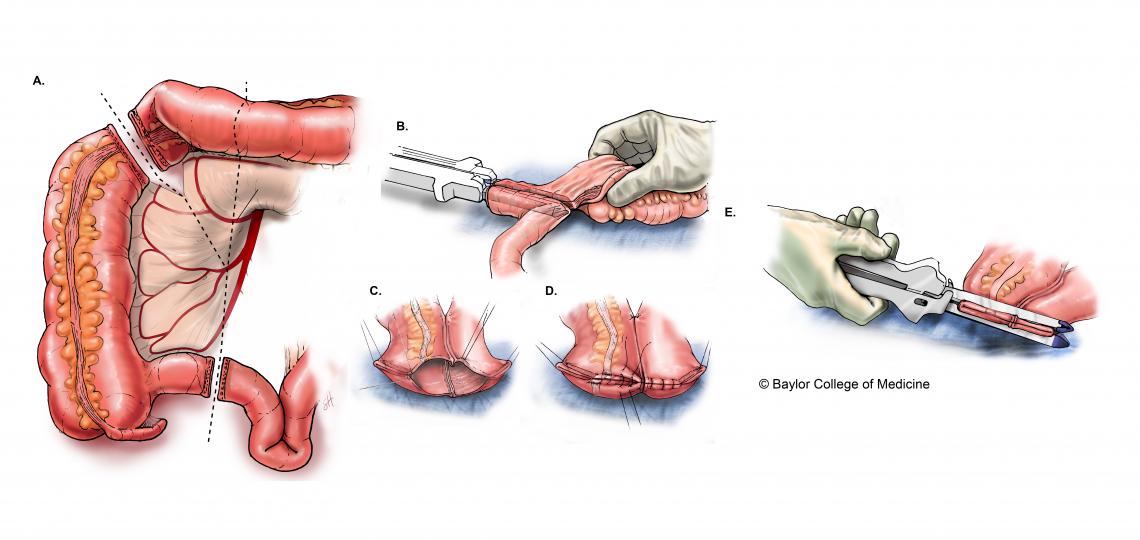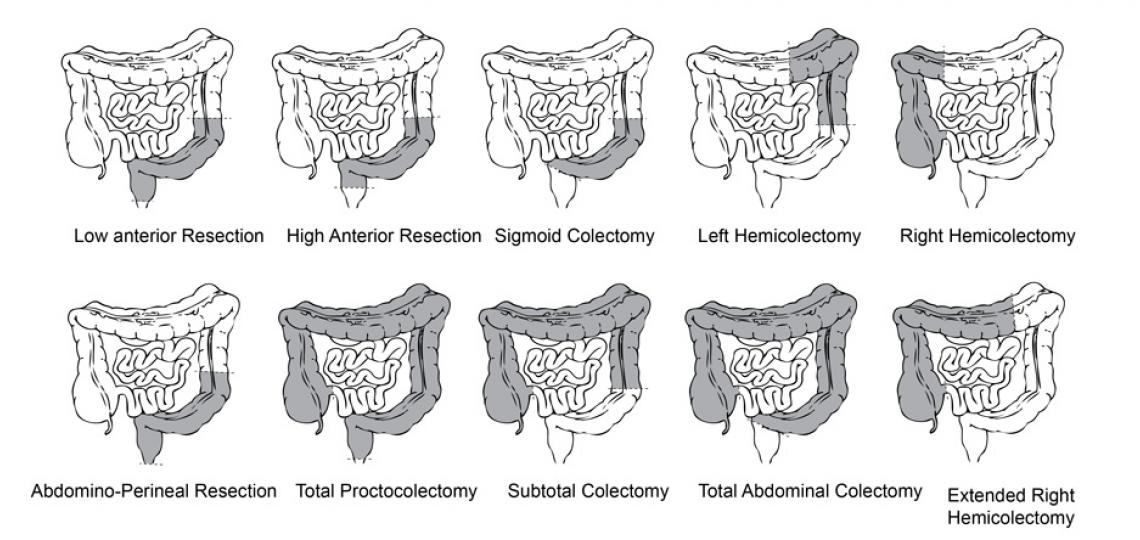What is a colon resection?
Resection is another name for any operation that removes tissue or part of an organ. Bowel resection, also called partial colectomy, removes a diseased or damaged part of the colon or rectum. Bowel resection can be done for many diseases that affect the colon, such as colorectal cancer, diverticulitis, or Crohn's disease.
The goal of bowel resection is to take out the part of the colon or rectum where the problem is. If the doctor is removing cancer from the colon, nearby lymph nodes are taken out and tested for cancer. Then healthy parts of the colon or rectum are sewn back together. Bowel resection is done either by opening the abdomen (open resection) or by laparoscopy.
Laparoscopy for bowel resection usually involves 3 to 6 very small incisions instead of one large one. Recovery time is faster.
You and your doctor will think about several things in deciding whether you should have open resection or a laparoscopy. These include:
- The location and extent of the disease.
- Your general health.
- Whether you have scar tissue in the area from previous surgery.
- Your doctor's expertise and experience.
Sometimes a laparoscopic surgery has to be changed to an open resection during the surgery.
Types of colon resection. Grey area indicates area removed.
Why is a bowel resection done?
A bowel resection may be done to remove cancer or when the colon cannot function normally because of damage or disease. You may need a bowel resection if you have:
- A bowel obstruction
- Colon cancer
- Crohn's disease
- Diverticulitis
Bowel resection for colorectal cancer
Resection is another name for any operation that removes tissue or part of an organ. Bowel resection for colorectal cancer, also called partial colectomy, removes the tumor. To make sure that only healthy tissue is left, the doctor removes a small amount of colon or rectum tissue on both sides of the tumor.
The goal of bowel resection is to take out the part of the colon or rectum where the cancer is. Nearby lymph nodes are taken out and tested for cancer. Then healthy parts of the colon or rectum are sewn back together. Bowel resection is done either by opening the abdomen (open resection) or by laparoscopy.
What can you expect after a bowel resection?
Bowel resection requires general anesthesia. You may stay in the hospital for one to three days but most patients go home within one to two days.
Sometimes the two parts of the colon or rectum cannot be reattached, so the surgeon performs a colostomy. This creates an opening, called a stoma, on the outside of the body for the stool, or feces, to pass through into a colostomy bag. Usually the colostomy is temporary, until the colon or rectum heals. If the lower part of the rectum has been removed, the colostomy is permanent.
When the two-stage operation is done, the time between operations is usually 6 to 12 weeks.
The recovery time after a one-stage operation or after the final operation of a two-stage surgery is usually 6 to 8 weeks.
© 2016-2019 Healthwise, Incorporated.








 Credit
Credit

